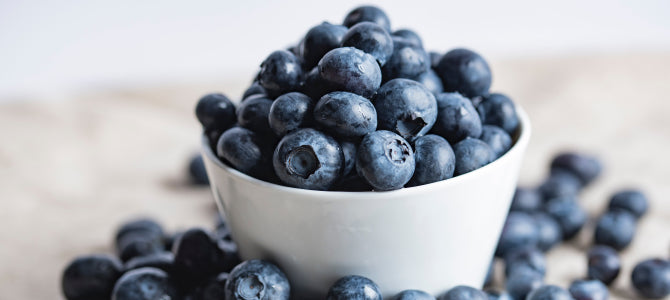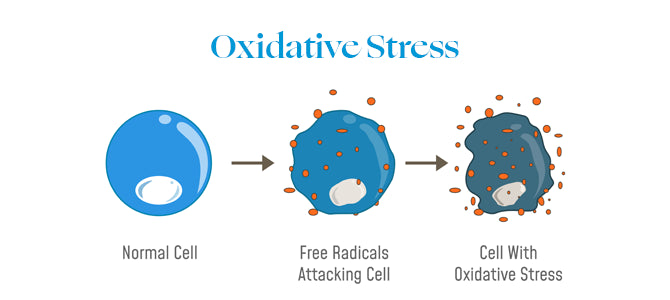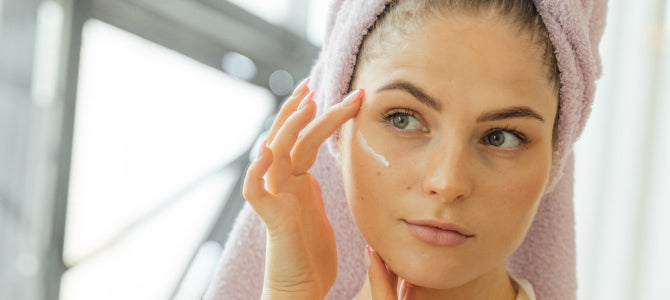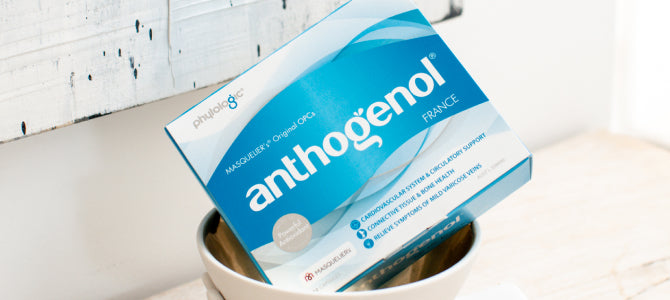Science Behind Antioxidants


You hear the word antioxidants, and probably think ‘healthy.’ However, what still remains a mystery to many is the WHY behind the benefits of antioxidants. According to the National Center for Complementary and Integrative Health, antioxidants are man-made or natural substances that may delay or prevent cell damage. This article will delve into the science behind antioxidants and WHY they are said to have health benefits.

Free radicals are unstable molecules that are naturally formed when you exercise or when your body turns food into fat. Free radicals are known to cause ‘oxidative stress’ which over time causes serious damage to cells and is also said to play a role in the formation of diseases such as Parkinsons, Alzheimers, and eye diseases. Since there is nothing that can be done to prevent the formation of free radicals, it is important to balance these molecules so they don’t lead to cell damage.

There have been many laboratory experiments that have shown antioxidant molecules to counteract oxidative stress molecules in the body. Thus, the free radical will also balance out, better preventing cells from being damaged.
So what does this mean in terms of diet?
Like anything, antioxidants are beneficial in moderation. You shouldn’t try to only consume foods that are high in antioxidants, because this can be dangerous. Eating a healthy and balanced diet is still important, however, you should try to incorporate antioxidants into your routine as best as you can.
If you are satisfied with your current diet, and don’t want to switch it up, we have a solution for you!
Anthogenol® is packed full of antioxidants, that are scientifically* proven to:
- Reduce free radicals formed in the body
- Support skin health
- Support skin structure
- Support collagen formation

If you want to consume your antioxidants in a quick and effective way, you can order Anthogenol® at www.anthogenol.com.au or purchase at your local Woolworths, Priceline Pharmacy, Coles, or Chemist Warehouse!

*Citations:
Sponsors: I.N.C. De Zodde 16 1231 MB Loosdrecht The Netherlands [1] Antagonistic action of Endotelon® on histamine papule and areole. Agache P., 1981. La Vie Medicale (1981); 88(14): 2035-2038 (FR) Key findings: Taking 200 mg Masquelier’s® Original OPCs per day (≈2 Anthogenol® Capsules), skin problems such as papules and erythema was found reduction rate (17 times out of 32)- 48.5% reducing rate.
[2] Post-traumatic edemas in sports: a controlled test of Endotelon®. Parienti J.J. and Parienti-Amsellem J., 1983 Gaz Med de France, (1983); 90(3): 231-236 (FR) Key findings: Taking 200-400 mg Masquelier’s® Original OPCs per day (≈2 to 4 Anthogenol® Capsules) for 10 days, collagen deficiency related issues such as post-traumatic edemas in sports relief or disappeared.
[3] Light vision and chorioretinal circulation. Study of the effect of procyanidolic oligomers (Endotelon®). Corbe. J.Fr.Ophthalmol (1988); 11(5): 453-460 (FR) Key findings: Taking 200mg Masquelier’s® Original OPCs per day (≈2 Anthogenol® Capsules) for 5 weeks, 98% of trial groups tested to be effective in improving eyesight/night vision function.
[4] Therapeutic trial of a peripheral angioprotector, Endotelon®. Beylot and Bioulac, 1980. Gaz Med de France (1980); 87(22): 2919-2922 (FR). Key findings: Taking 150-200 mg Masquelier’s® Original OPCs per day (≈2 Anthogenol® Capsules), 73% Patients varicose veins symptoms were corrected or relieved.

